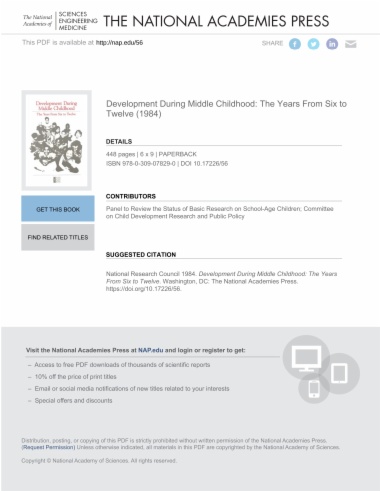For the first time, a report focuses specifically on middle childhood—a discrete, pivotal period of development. In this review of research, experts examine the physical health and cognitive development of 6- to 12-year-old children as well as their surroundings: school and home environment, ecocultural setting, and family and peer relationships.
- Cover
- Front Matter
- 1 Introduction
- 2 The Biological Substrate and Physical Health in Middle Childhood
- 3 Cognitive Development in School-Age Children: Conclusions and New Directions
- 4 Self-Understanding and Self-Regulation in Middle Childhood
- 5 Middle Childhood in the Context of the Family
- 6 The Peer Context in Middle Childhood
- 7 School Children: The Middle Childhood Years
- 8 Ecocultural Niches of Middle Childhood: A Cross-Cultural Perspective
- 9 The Status of Research Related to Psychopathology
- 10 Conclusion: The Status of Basic Research on Middle Childhood
- Index

